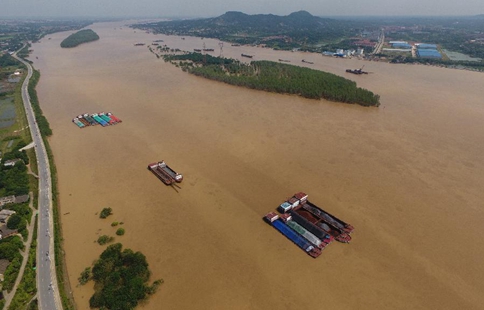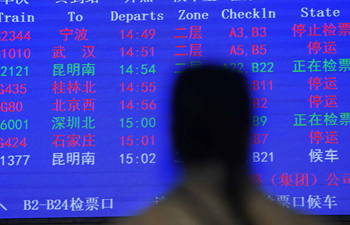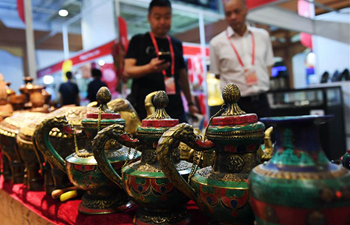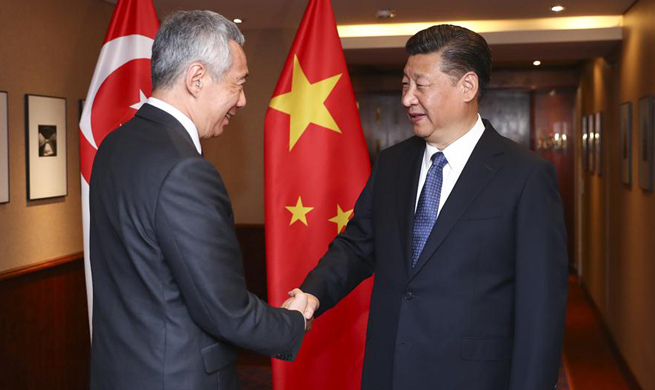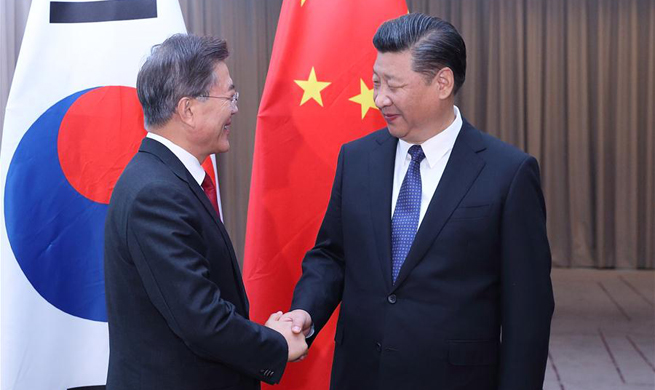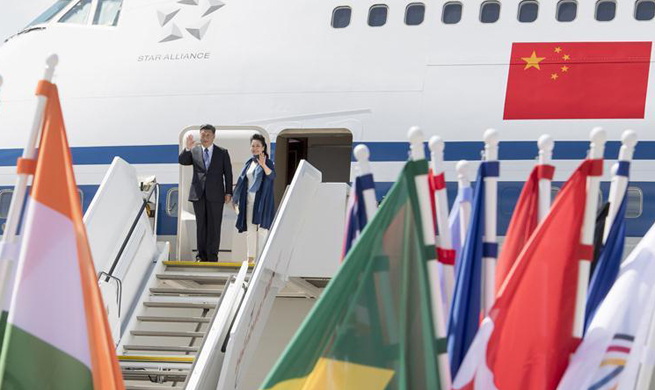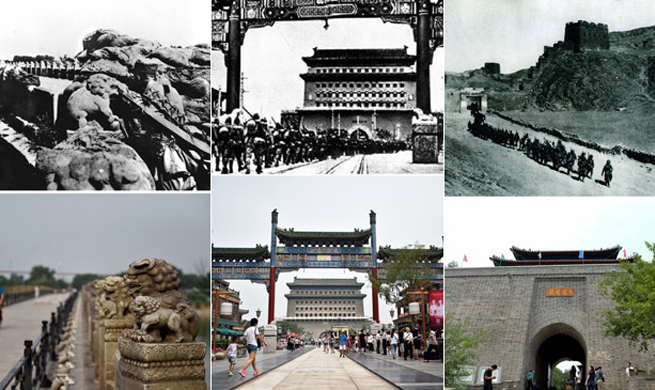HAMBURG, Germany, July 7 (Xinhua) -- Amid rising anti-globalization and protectionist sentiments, leaders attending the 12th G20 summit here should seize the chance to safeguard multilateralism and free trade while tackling global economic imbalances in an efficient and fair way.
The goal is to ensure more people can benefit from globalization.
Free trade and economic globalization have long been an important propellent of global economic growth, benefiting both developed countries and developing ones.
U.S. President Donald Trump, however, rolled out his "America first" policy after he assumed office. Believing that bilateral trade agreements will better protect American interests, he fulfilled his campaign pledge to pull the country out of the Trans-Pacific Partnership, announced his intention to renegotiate North America Free Trade Agreement, and gave the cold shoulder to the Transatlantic Trade and Investment Partnership.
Given the circumstances, a consensus on free trade would be a top priority for this year's G20 summit.
Though it may not be easy, several leaders have voiced their support.
In a signed article published on mainstream German media on Tuesday, Chinese President Xi Jinping said the G20 summit needs to "stay committed to open development, support the multilateral trading regime with the WTO at its heart, and enable trade and investment to continue to drive global economic growth."
In May, German Chancellor Angela Merkel said in Berlin at the B20 Summit, an integral part of the G20 Summit and the official G20 dialogue with the global business community, that as the host of the G20 Summit 2017, Germany would commit to further promoting globalization and a strong, sustainable and inclusive economic growth, while reaffirming her opposition to protectionism and isolationism.
Leaders of France, Britain, Italy, Spain, Holland, Norway, Germany and the EU told a press conference in late June as they met to seek a united front ahead of G20 summit that they would also work together on free trade and climate change.
Bolstering an open and fair rules-based multilateral trading system and harnessing globalization should top the G20 agenda, said European Council President Donald Tusk and European Commission President Jean-Claude Juncker in a joint letter issued on July 4. Juncker and Tusk will represent the EU, also a G20 member, at the summit.
"Concerns about job losses and erosion of standards attributed to trade will be at the top of the agenda. These concerns must be addressed, not by erecting protectionist barriers, but by making trade and investment both free and fair," they added.
Created in 1999 after the Asian financial crisis, the G20 in its early years only convened finance ministers and central bank governors. Following the 2008 global financial crisis, the meeting was raised to the level of heads of state and government. It has played an important role in tackling the financial crisis and boosting world economic recovery.
As the G20 Hamburg Summit unveils, it is hoped that consensus can be reached on free trade, safeguard multilateralism.







